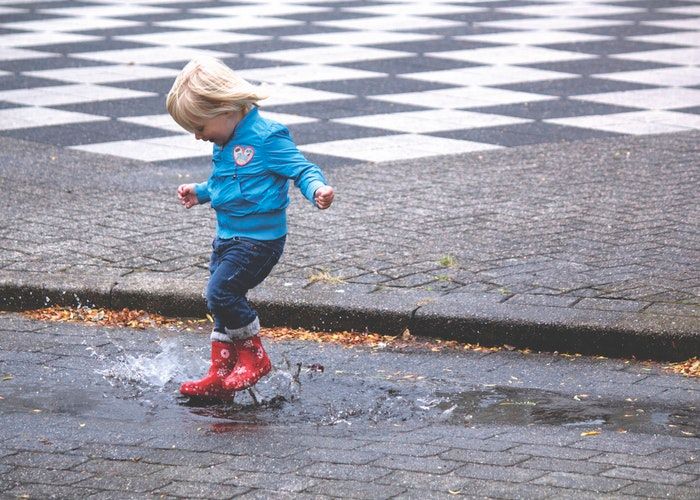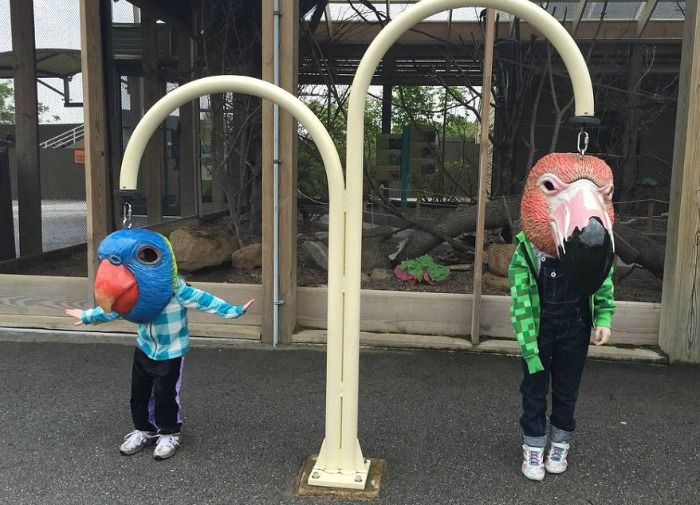A few years ago we were at the zoo and I noticed an interaction between a child and a parent. There was a conflict because the child wanted to stay and watch the giraffes but the parent was insistent that they needed to move along and get the next item on the laminated scavenger hunt list they were carrying around on a clip board.
Now, it might sound a bit judgmental of me, after all I have no context for this family other than the few minutes I observed and there are many valid reasons they might have needed to move along, but I’ve often thought about that child and wondered if they might not have benefited more from their zoo outing by observing the animal they wanted to for as long as they wanted to rather than rushing from animal to animal on the parent’s pre-planned check list.
That experience has stuck with me and reminds me not to cling too closely to my own plans when it comes to play.
Now, I am a parent who uses planned activities and crafts, has curated Pinterest boards full of book lists and ideas, and a library full of kids craft, cooking, science, and nature books. I love a good planned activity!

However, kids need unstructured play. You know, the kind that happens naturally and without all the control and advance prep work that we parents and caregivers are sometimes guilty of overdoing.
I think it is good for our children, and for us, to walk on the wild side and throw out the rules and the organized crafts and curriculum on a regular basis and just play.
Kids need a healthy amount of unstructured play, even boredom.
From that time and space, creativity and imagination have room to bloom.
I’m sharing five quotes from some of my favorite authors on the subject of childhood and play and why it’s good for our kids to just let things happen and go with the playtime flow.
“…by allowing rather than controlling, we give children a sense of freedom and autonomy. Their play is open-ended, the choices and decisions are theirs to make, and the discovery process includes self-discovery. Quite simply: children’s play flourishes when we “let it” rather than “make it” happen.“
– Simplicity Parenting: Using the Extraordinary Power of Less to Raise Calmer, Happier, and More Secure Kids by Kim John Payne, M.Ed.

“Just as it is important not to skip steps like crawling in physical development, it is important not to skip play, which allows for the development of a wide range of experiences, so that what is first grasped through action can later be learned anew through thought.”
– You Are Your Child’s First Teacher: Encouraging Your Child’s Natural Development from Birth to Age Six, by Rahima Baldwin Dancy
The author gives a terrific example of how an adolescent studies physics and levers and remembers the childhood experience of shifting either forward or backward on a seesaw in order to teeter totter with a friend.
Real world play experience translates to real word knowledge.

“Nature teaches us how the world works.”
“Imagination teaches us how to dream.”
“Play teaches us how to make our dreams real.”
Imagine Childhood: Exploring the World Through Nature, Imagination, and Play by Sarah Olmsted

“If we watch a young child at play, we can see that through her constant sensory/physical interaction with the environment, she gains experience and understanding of the situation, of herself, and the relationship between the two. She comes to know herself, the world, and what flows between.“
– Heaven on Earth: a Handbook for Parents of Young Children by Sharifa Oppenheimer
The baby tossing her bowl off of the high chair over and over.
The seven year old listening to her yells echo in the woods.
The toddler building block towers and then knocking them down.
It’s an amazing and wonderful thing to learn and explore the world and to see how we fit in it and indeed, even affect it as it affects us.

Unstructured plays isn’t just great for kids, it’s healthy and beneficial for adults, too.
“Because play is so good for us, we needn’t feel guilty for doing it. It isn’t a waste of time when we grown-ups do it, and it certainly isn’t a waste when children do it. Play is a catalyst that makes us more productive and happier in everything we do.“
– Raising Happiness: 10 Simple Steps for More Joyful Kids and Happier Parents by Christine Carter Ph.D.
Let go and see what happens. Play! With no rules, no structure, no pre-planned outcome. Just play! It is good for them and it is good for us, too!



